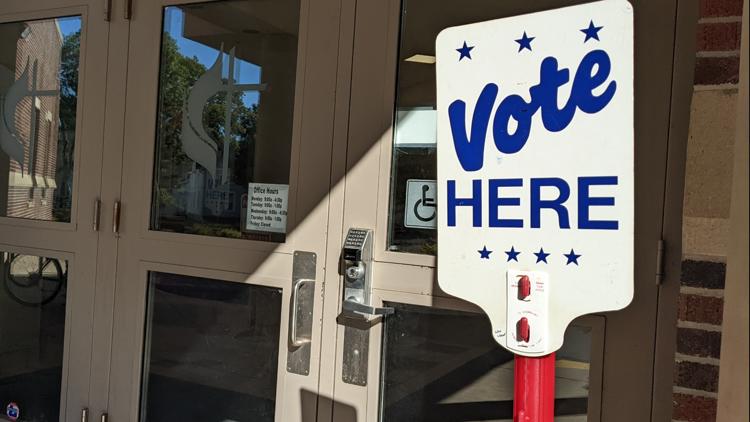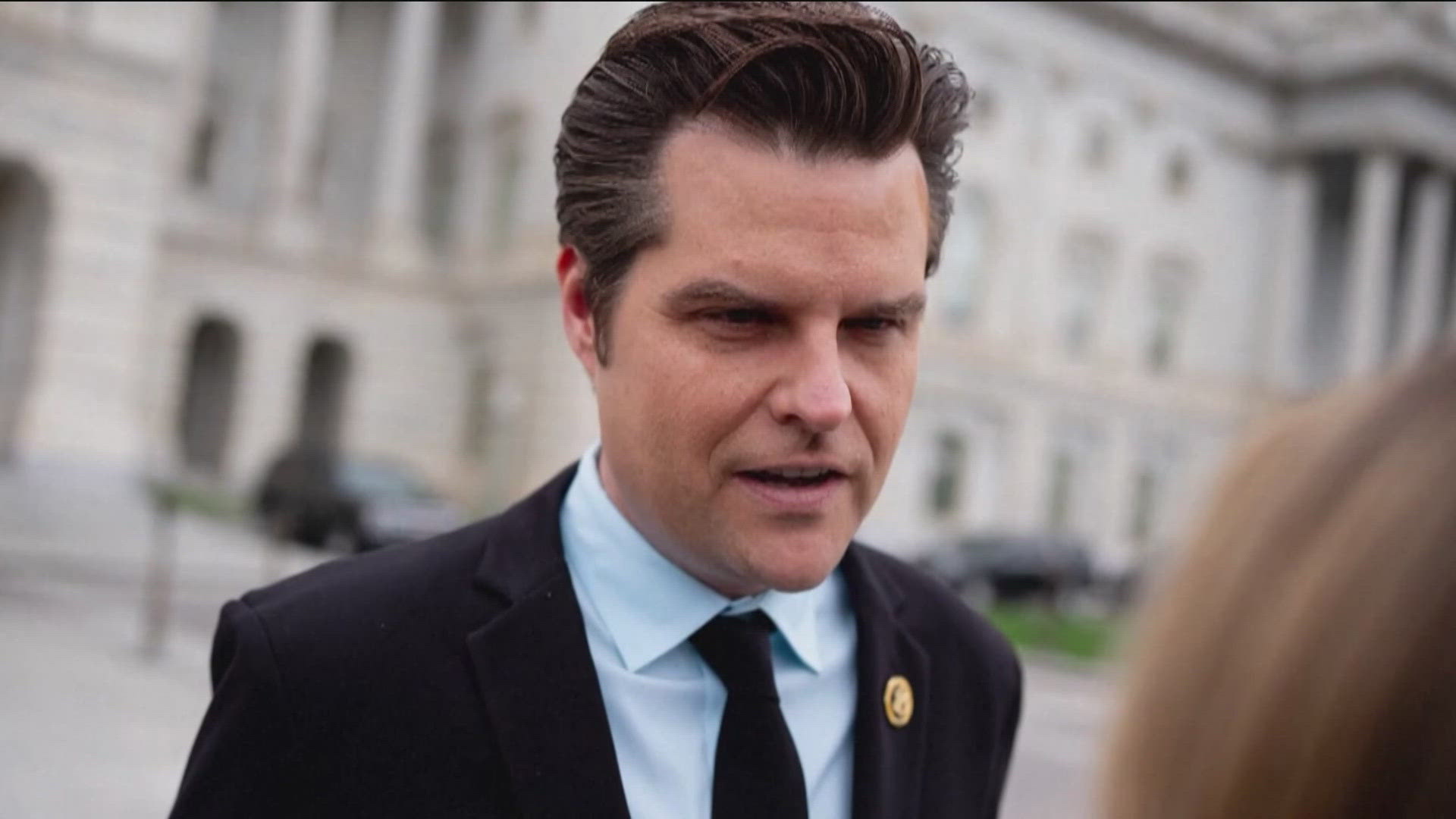MADISON, Wis. — Voters in swing state Wisconsin will have another choice to make after casting their ballots for president in November — whether to explicitly bar foreign nationals from voting.
At the bottom of the ballot is a statewide referendum authored by Republican legislators asking for permission to amend the state constitution to clearly prohibit non-U.S. citizens from voting in any election held in the state.
Part of a GOP push across the country, the move was spurred by municipalities in a handful of states letting noncitizens vote in local elections. North Dakota, Alabama, Florida, Colorado, Ohio and Louisiana have all adopted the measure in recent years and it's on the ballot in eight others, including Wisconsin, Iowa, Kentucky and Missouri.
Republicans argue they're trying to protect election integrity as immigrants pour over the southern border. Democrats and other opponents say the amendment has no practical effect — no Wisconsin municipalities allow noncitizens to vote — and is instead designed to draw conservatives to the polls and stoke anger against foreigners in the United States.
"There is no problem with noncitizens voting," said Jeff Mandell, an attorney with Law Forward, a nonprofit organization that advocates for voter rights. "It is the very definition of a solution in search of a problem."
Voting by noncitizens is rare.
According to the Pew Research Center, over 25 million people living in the U.S. in 2020 were not U.S. citizens. This included approximately 12 million permanent residents, as well as 2 million temporary residents visiting the U.S. as students, tourists, foreign workers and foreign officials. Pew's figure also included approximately 11 million migrants living in the U.S. illegally.
A 1996 federal law already makes it illegal for noncitizens to vote in federal elections.
No state constitutions explicitly allow noncitizens to vote and many states have laws prohibiting them from voting in statewide races. State data also indicates voting by noncitizens is rare, although Republicans have highlighted voter registration reviews that turned up potential noncitizens.
Texas Gov. Greg Abbott said in August that over 6,500 potential noncitizens had been removed from the state's voter rolls since 2021. Ohio Secretary of State Frank La Rose also said in August that he referred 138 apparent noncitizens found to have voted in a recent election for prosecution. And Alabama Secretary of State Wes Allen has said that 3,251 people previously identified as noncitizens by the federal government have been deactivated on the state's voter registration rolls.
Multiple municipalities in California, Maryland and Vermont as well as the District of Columbia allow noncitizens to vote in some local elections such as school board and city council races. Republicans fear more jurisdictions could follow.
'It's got nothing to do with race or immigration'
Wisconsin's constitution currently states that every U.S. citizen is a valid elector. The amendment would revise that language to say that only U.S. citizens can vote.
State Rep. Tyler August, the amendment's chief Assembly sponsor, said Wisconsin Republicans want to make "crystal clear" that foreign nationals can't vote in the state.
"While (the state constitution) says every U.S. citizen can vote, we want to make sure that can't be interpreted to mean every U.S. citizen plus all these other folks," August said. He acknowledged that noncitizens voting in other states drove the amendment.
But August rejected arguments that the amendment discriminates against foreign nationals and is designed to draw conservatives to the polls — predicting that Republicans will still turn out "in droves" for former President Donald Trump.
"It's very clear," August said. "If someone comes here legally and goes through the process and they're granted U.S. citizenship, they'll be able to vote. It's got nothing to do with race or immigration."
An aide for Republican state. Sen. Julian Bradley of New Berlin, the amendment's chief sponsor, referred questions about it to August.
Wisconsin constitutional amendments must pass two consecutive legislative sessions and a statewide referendum before they can take effect. Republican lawmakers passed the measure in 2022 and again last year without a single Democratic vote either time. Democratic Gov. Tony Evers has no role in approving constitutional amendments.
Just one organization favors amendment while over 30 oppose it
Wisconsin Ethics Commission records show the only organization to register in favor of the amendment this session is Wisconsin Family Action, a conservative group that says it works to defend marriage, the family and religious liberty. Multiple organizations have registered in opposition, including the American Civil Liberties Union and the League of Women Voters.
More than 30 organizations have also signaled opposition, including Law Forward, Black Leaders Organizing for Communities and immigrant rights group Voces de la Frontera. The groups in a September news release called the amendment a power grab that fosters discrimination and could lead to more anti-immigrant measures.
"Not only is this statewide ballot question intentionally confusing, but it will create real harm," the coalition said. "The proposed change in voter eligibility from 'every' citizen to 'only' citizens diminishes all of our voting rights. We urge Wisconsinites to vote no to preserve the constitutional guarantee that protects our freedom to vote from further infringement."



